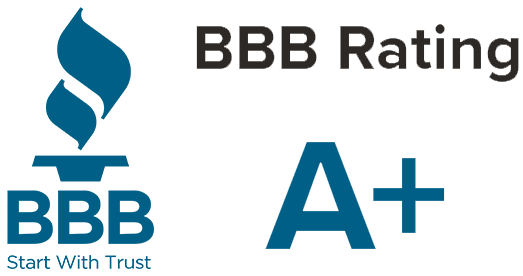Mastering Nonprofit Accounting: A Comprehensive Guide to Achieving Your Mission
By TED ROSE, ROSE FINANCIAL SOLUTIONS
Understanding nonprofit accounting is essential for organizations aiming to achieve their mission effectively and sustainably. This guide covers the basics, challenges, and best practices in nonprofit accounting, along with the benefits of outsourcing these services.
Nonprofit Accounting Basics: What is Nonprofit Accounting?
Nonprofit accounting focuses on tracking and managing funds to ensure they are used according to member, donor, and regulatory requirements. Unlike for-profit accounting, the goal is to maintain financial transparency and accountability rather than maximizing profits. Nonprofit organizations must adhere to specific standards and practices that ensure they use funds responsibly and report their financial activities accurately.
Importance of Accurate Nonprofit Accounting
Accurate accounting helps nonprofits:
•Report to boards and stakeholders: Regular financial reports help keep everyone informed about the organization’s financial health.
•Comply with grant requirements: Proper accounting ensures that funds are used as intended and that the organization can secure future grants.
•Make informed decisions: Financial data is crucial for strategic planning, goal setting, and hiring decisions.
• Build trust: Transparent accounting practices build confidence among stakeholders and the community.
Common Challenges in Nonprofit Accounting
Nonprofits face unique accounting challenges:
•Managing multiple funding sources and restrictions: Nonprofits must track and report how funds are used, ensuring they comply with any donor-imposed restrictions.
•Preparing for audits: Nonprofits must prepare for audits that adhere to FASB standards and in some cases with OMB A-133 or A-122.
•Ensuring compliance: Nonprofits must comply with numerous regulatory requirements, including grantor and government standards.
• Strategic budgeting: Effective budgeting is critical for aligning resources with the organization's mission.
•Accounting for unrelated business income: Nonprofits with income from activities not related to their mission must account for unrelated business income tax (UBIT).
Fund Accounting for Nonprofits: What is Fund Accounting?
Fund accounting allows nonprofits to manage various sources of income, such as donations, member dues, grants, and government funds, separately. This system ensures funds are used for their intended purposes without the need for multiple bank accounts. Nonprofits can separate different funds using accounting software and their chart of accounts, ensuring transparency and accountability.
Types & Best Practices in Fund Accounting
Fund accounting focuses on accountability rather than profitability. Key practices include:
• Using accounting software: This helps track restricted and unrestricted funds accurately.
• Preparing detailed reports: These are essential for auditors to verify fund usage.
• Ensuring compliance: Following donor restrictions and regulatory requirements is crucial.
For example, if a community foundation provides a $75,000 grant for at-risk youth counseling, the nonprofit must account for this as a restricted fund and ensure it is used solely for that purpose. Auditors will verify this during their review, ensuring compliance with donor intent and best accounting practices.
Get started with ROSE®
Looking for a simpler way to manage your finance, accounting, and tax needs?
Experience the difference that our expert professionals and leading-technology can make.
Financial Reporting for Nonprofits: Nonprofit Financial Statements
Nonprofit financial statements include:
• Statement of Activities: Similar to an income statement, showing revenue and expenses.
• Statement of Financial Position: A balance sheet that includes assets, liabilities, and net assets.
• Cash Flow Statement: Tracks cash inflows and outflows.
• Functional Expense Statement: Breaks down expenses by function (e.g., program services, management, and fundraising).
These statements provide a comprehensive view of the organization’s financial health and are crucial for internal management and external reporting.
IRS Form 990
All nonprofits must file IRS Form 990 annually. This form provides the IRS and the public with financial information about the organization and ensures compliance with tax regulations. It includes details on the nonprofit’s revenue, expenses, and activities, providing transparency and accountability.
Other Regulatory Reporting Requirements
Nonprofits receiving federal funding may need to comply with DCAA requirements for accounting systems and payroll. Larger organizations might also need to submit audited financial statements to funders and state agencies. Ensuring compliance with these requirements is essential for maintaining funding and credibility.

Benefits of Outsourcing Nonprofit Accounting
Outsourcing nonprofit accounting offers several advantages:
• Cost Savings: Reduces overhead costs compared to hiring full-time staff.
• Expertise: Access to professionals experienced in nonprofit accounting.
• Scalability: Adjust accounting resources as needed, based on the organization’s growth and changing needs.
Outsourcing can help nonprofits stretch their budgets further, allowing more resources to be directed toward their mission.
How Rose Financial Solutions Can Help
ROSE® offers comprehensive outsourced accounting services through their Finance as a Service (FaaS) model. Their cutting-edge system, Easby®, enhances financial performance by providing actionable insights. ROSE can help nonprofits with:
• CFO and Financial Management
• Tax and Regulatory Compliance
ROSE’s expertise ensures that your nonprofit organization maintains accurate financial records, complies with regulations, and has the financial information to make informed financial decisions. By leveraging our services, you can focus on your mission while we handle the financial complexities.

Ted Rose
In 1994 Ted Rose founded Rose Financial Solutions (ROSE), the Premier U.S. Based Finance and Accounting Outsourcing Firm. In 2010, the Blackbook of Outsourcing named ROSE the #1 FAO firm in the world based on client satisfaction. As the president and CEO of ROSE, he provides executives with financial clarity. Ted has also acted as the CFO for a number of growth companies and assisted with various rounds of financing and M&A transactions.
Share this article:
Visit Us On:





